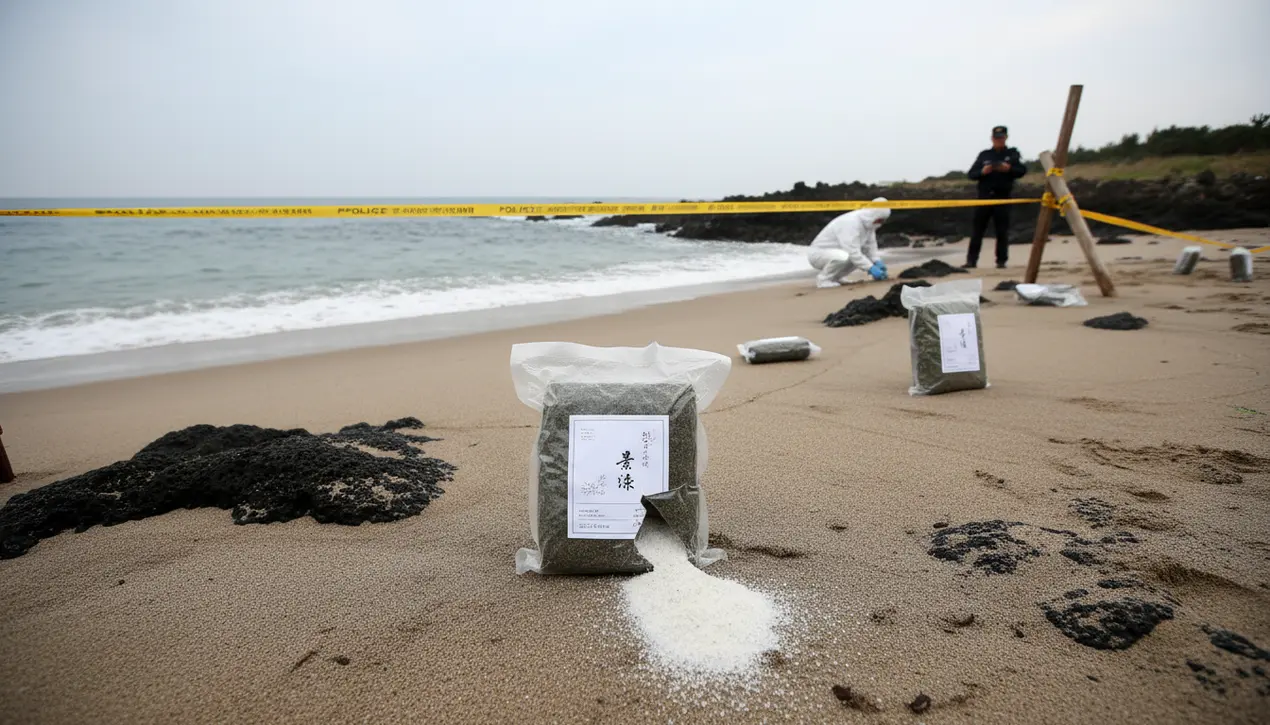
Otherlaw & courtsCriminal Cases
Drugs Disguised as Tea Wash Up on South Korean Island.
EM
Emma Wilson
5 hours ago7 min read3 comments
In a startling development that reads more like a crime thriller than a routine coastal report, the remote beaches of South Korea's Jeju Island have become the unlikely stage for a narcotics mystery, with approximately 28 kilograms of ketamine—meticulously packaged to mimic commercial tea—washing ashore over the past two months. This isn't merely a case of lost contraband; it's a chilling signal of shifting trafficking routes and the brazen ingenuity of international drug cartels exploiting maritime pathways.Local fishermen, who first discovered the sinister parcels, initially mistook the vacuum-sealed, professionally labeled bags for lost cargo, a tragic misunderstanding that underscores the sophisticated deception at play. The sheer volume, with an estimated street value soaring into the millions, points not to a small-time operation but to a significant, coordinated drop gone awry, likely from a mothership navigating the volatile currents between China and the Korean peninsula.Authorities from the Korea Coast Guard and the Jeju Provincial Police Agency are now scrambling, treating every incoming tide as a potential evidence drop, while forensic teams work to trace the chemical signature of the ketamine back to its production labs, potentially in Southeast Asia. This incident echoes a similar, though smaller, event in 2021 when methamphetamine washed up on Japanese islands, revealing a pattern where syndicates use the ocean as a conveyor belt, sacrificing portions of their cargo to waves and weather to avoid direct port interception.The human cost is palpable; Jeju, a UNESCO World Heritage site known for its volcanic landscape and tranquil haenyeo divers, now sees its idyllic shores cordoned off with police tape, its community gripped by a dual fear of the drugs themselves and the shadowy figures who may soon come looking for their lost fortune. The psychological impact on residents, particularly parents whose children play on those very sands, is profound, transforming a place of solace into one of suspicion.This maritime narcotics pipeline represents a direct challenge to South Korea's stringent drug laws, which carry severe penalties, and raises urgent questions about the adequacy of coastal surveillance in an era of increasingly audacious smuggling techniques. As investigators piece together this aquatic puzzle, the event serves as a grim reminder that the global war on drugs is no longer confined to border checkpoints and airport scanners but is now washing up, quite literally, on our doorsteps, demanding a more vigilant and internationally coordinated response to secure our shared waters.
#drug trafficking
#ketamine
#South Korea
#Jeju Island
#washed ashore
#illegal drugs
#law enforcement
#featured
Stay Informed. Act Smarter.
Get weekly highlights, major headlines, and expert insights — then put your knowledge to work in our live prediction markets.
Comments
Loading comments...
© 2025 Outpoll Service LTD. All rights reserved.